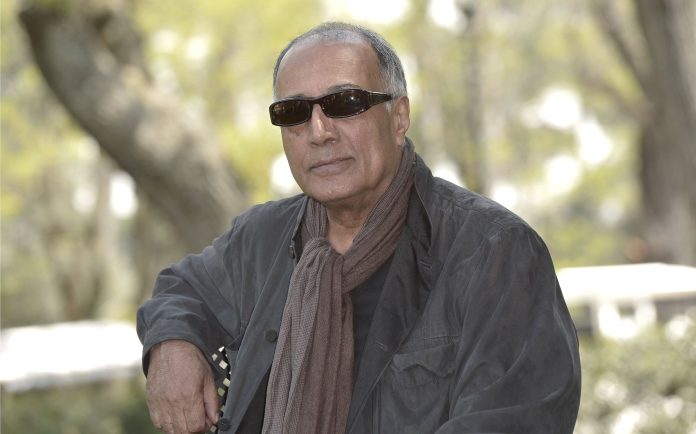Abbas Kiarostami, who has died aged 76, was an influential movie director and the one Iranian ever to win the Palme D’Or at Cannes; he obtained the award for Style of Cherry (1997), a minimalist movie a few man driving across the suburbs of Tehran in search of somebody to bury him after he has dedicated suicide.
The viewers by no means learns why the protagonist Mr Badii (Homayon Ershadi) needs to kill himself and he reveals little to the three individuals he picks up within the hope that they may carry out the burial. By the tip of the movie, furthermore, little extra gentle is shed on proceedings; Badii lies in his grave throughout a thunderstorm, after which there’s footage of Kiarostami and his crew making the movie.
The movie epitomised Kiarostami’s reflective and infrequently unsettling film-making model, dominated by lengthy pictures, lengthy takes and lengthy silences. Dusty, suburban Tehran sprawls past Badii’s automobile, contrasting with the shut ups of Baddii himself. And regardless of the movie’s leisurely tempo, it’s infused with an unnerving undercurrent of suspense.
Style of Cherry was not greeted with common acclaim, significantly in America, the place the critic Roger Ebert dismissed it as “excruciatingly boring”. It was robustly defended, nonetheless, by many who noticed Kiarostami as one of many best film-makers of the Nineteen Nineties, a classy auteur and a grasp at portraying the human situation.
“In my movies,” Kiarostami defined in 2013, “I attempt to give individuals as little data as doable, which remains to be far more than what they get in actual life. I really feel that they need to be pleased about the little bit of data I give them.”
The son of a painter of frescoes, Abbas Kiarostami was born in Tehran on June 22 1940. Initially he pursued his creative pursuits by artwork and graphic design, which he studied on the College of Tehran.
Within the Nineteen Sixties he discovered work as a business artist. He went on to shoot tv commercials, in addition to illustrating youngsters’s books. In 1969 he helped to arrange a film-making division on the Institute for the Mental Improvement of Kids and Younger Adults in Tehran. His first movie, The Bread and Alley (1970) – a 10-minute black and white quick a few boy confronting a hungry canine as he brings dwelling a loaf of bread – was for the Institute, and was adopted by Breaktime, one other snapshot of childhood (this time a few boy who has been despatched dwelling from college for breaking a window) in 1972.
Througout the Seventies and Eighties Kiarostami continued to develop his filmic model, making easy, reasonable quick movies, typically about youngsters and the ethical decisions they face when coping with what look like life’s on a regular basis dilemmas.
Not like lots of his contemporaries within the Iranian new wave of film-makers, Kiarostami didn’t depart his nation after the 1979 Islamic revolution. He lived and labored in Iran and – excluding his most up-to-date work which was filmed outdoors the nation – created movies which evaded the Iranian censors.
He didn’t start to obtain worldwide consideration till The place Is the Buddy’s House? (1983), the story of a kid returning his good friend’s pocket book to a close-by village. The movie shaped a part of what turned often called the Koker trilogy, as a result of it featured, together with And Life Goes On (1992) and By the Olive Timber (1994), the village of Koker in northern Iran.
Shut-Up (1990) was greeted with lukewarm opinions in Iran however was hailed by many on the worldwide movie scene as Kiarostami’s masterpiece. The movie informed the story of the real-life trial of a conman who had impersonated the film-maker Mohsen Makhmalbbaf, and it featured all of the characters from the actual story taking part in themselves.
After the success of Style of Cherry, Kiarostami made The Wind Will Carry Us (1999), an examination of custom in a Kurdish village by the eyes of visiting journalists, which received the Silver Lion on the Venice Worldwide Movie Pageant. In 2001 he made ABC Africa, a documentary about Ugandan youngsters orphaned by the Aids epidemic, and the next yr he directed Ten, which comprised 10 scenes during which a feminine driver picks up varied passengers throughout a automobile journey by Tehran, gently exploring, by the conversations that happen, the issues going through girls in Iranian society. Like Style of Cherry, the movie used the straightforward setting of a automobile journey – the place dialog is unfettered by the standard social conventions.
Collaborations with the British director Ken Loach and the French actress Juliette Binoche adopted, together with Licensed Copy (2010) during which Juliette Binoche starred reverse William Shimell and which adopted the event of a relationship between a British author and a French antiques seller in the course of the course of a day.
Abbas Kiarostami’s closing movie, Like Somebody In Love (2012), informed the story of the connection between a prostitute and her aged shopper, a retired college professor.
Hardly ever seen with out sun shades due to a sensitivity to gentle, Kiarostami embraced numerous different creative ventures together with pictures, experimental video work and poetry. In 2002 he revealed Strolling with the Wind, a set of haiku-like poems. In 2008 he staged a manufacturing of Mozart’s Cosi Fan Tutte for ENO on the Coliseum, utilizing spectacular filmed backdrops.
The opera was overshadowed, nonetheless, by delays to Kiarostami’s British visa, and he labored on the manufacturing in absentia from Iran, directing the solid by way of emails and phone calls.
Kiarostami married Parvin Amir-Gholi in 1969. The wedding was dissolved in 1982. Their two sons survive him.
Abbas Kiarostami, born June 22 1940, died July 4 2016














